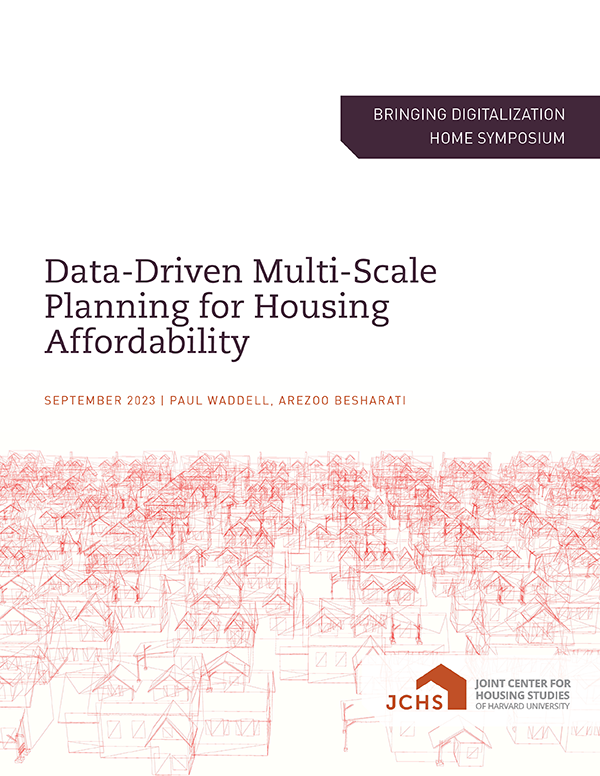Data-Driven Multi-Scale Planning for Housing Affordability
Housing affordability was a chronic problem in many cities across North America and across the globe well before the global pandemic triggered an unprecedented surge in rents and prices. According to a survey conducted in October 2021 by the Pew Research Center, almost half (49 percent) of Americans responding indicated that housing affordability was a major problem in their local community, an increase of 10 percent since 2018. And it has only worsened since then, with interest rates doubling during 2022 as the Federal Reserve Bank tried to slow the pace of inflation.
In this paper, we explore the multiscale challenges of housing affordability and the need for coordinated efforts to undertake planning for meeting broad social goals of improving housing affordability within the United States and Canada. We focus on the Canadian context in this paper due to our ongoing engagement there and the emerging prospects of multilevel cooperation in implementing solutions. The overall objective of the paper is to explore how housing affordability as a broad challenge is beginning to reshape the information and analysis tools used for policy, planning, project design, and evaluation at every scale from the site to the nation.
This paper was presented as part of “Panel 5: How Is Digitalization Changing How Housing Is Planned, Reviewed, and Regulated?” at the symposium Bringing Digitalization Home: How Can Technology Address Housing Challenges?, hosted by the Harvard Joint Center for Housing Studies in March 2022.

